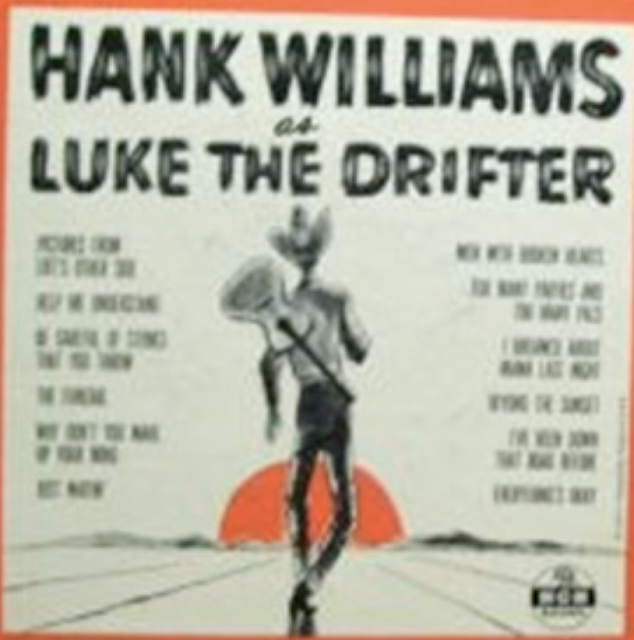I'm smack-dab in the middle of an excellent book right now, Malcolm Gaskill's "The Ruin of All Witches." You can buy the book here and read the review from "The New York Times" here.
Alongside Gaskill's book, I also recommend reading this short article from the year-end issue of "The Economist." It's called "The great inflation of the 1500s is echoing eerily today." You can read it here.
All this reading of the past might seem odd to you. And yes, I've always been regarded as odd--at work, at home, when I was in school--because I read a lot and about a lot of varied things. But reading about times gone by helps me get a sense of the times we live in. Reading of the past helps me reckon the present because I'm able to see parallels. It all helps calm me. Because I can see our current times are not of scary or unprecedented as they seem to so many.
As Hank Williams once yodeled, We've "Been Down that Road Before."
Despite all the hope that often accompanies a new year, I am going into 2023 with more than a little bit of anxiety. Since I got fired from Ogilvy three years ago and started GeorgeCo., LLC, a Delaware Company, I have never in my life worked harder than I am working now.
That hard work includes writing daily in this space. I've done it pretty much every day for 16 years and as much as part of me would like to take some time off, I won't.
Frankly, I don't know how.
And it cuts against my grain.
Reading "The Ruin of All Witches," which takes place in what is today Springfield, Massachusetts, is a lesson about work and buckling down. In 1650, Springfield was a small collection of about ten houses on the far-western fringe of European settlement in what was then called the new world.
These people were out there.
And they perceived dangers all around them.
Imagine traveling to an unknown world and starting over.
They were 100 miles from the seat of their government in Boston--a four-day trip under good conditions, and about a full-day or further from Hartford, Connecticut, assuming they didn't drown in the Connecticut River.
Everything had to be done by the people of Springfield themselves. There is very little help and no manufactured goods. Everything had to be made, built, farmed, cooked, woven by the people of Springfield. Every animal had to be raised, fed, slaughtered, tanned, preserved. There was no rest for the weary or the wicked and there were plenty of both.
There's also virtually no money. If you need help building a chimney, you pay in bushels of corn. If you are caught smoking a pipe on the single street through Springfield, you pay your fine with either labor or, again, bushels of corn.
The great economist Vaclav Smil, in his 'must-read' book, "How the World Really Works, wrote, "Human beings today enjoy, on average, the annual benefit of 34 gigajoules of energy. Expressed in units of human labor, that is 'as if 60 adults would be working nonstop, day and night,' for each person. Residents of affluent countries have it better: An American family of four has more hired help than the Sun King at Versailles."
Of course, that's not the way things were in Springfield almost 400 years ago. Simply reading about life there is tiring. A constancy of work interrupted only by babies and mothers dying in childbirth, smallpox, apparitions, and religious observation.
There was little time to curse your wife for misplacing, yet again, the remote to the 77-inch 4K flatscreen TV with stereophonic sound. Life was endless labor. Poverty, seasonal hunger, and death.
I go into 2023 with some dread.
With another year of work behind me--a couple of dozen clients each needing 30 or 40 ads, I wonder if I have another 800 ads in me. I wonder if I can write another 40 manifestos. I worry that I won't have ideas for another 250 blog posts. Not to mention 300 zoom calls. Can I really muster up the strength for those?
I look ahead to 2023, to 2024 to 2030, when I plan to hang up my spikes, and I worry that I am like an old flame-throwing righthander who has lost his fastball. I can get by with guile one-time through the batting order, but coach is leaving me in. Now what?
Now what?
Now, I think of the people of Springfield. Living, dying, working, surviving on the edge of the world. I think of their fears. Of their living with no comfort. In a world riven by civil war (many of them had left England amid bloody wars between the "roundheads" and the "cavaliers") I think about them and their survival, their perseverance. In the words of Curtis Mayfield, I think about their "Keep on Keeping On-" ness.
I mean, what else is there?



No comments:
Post a Comment